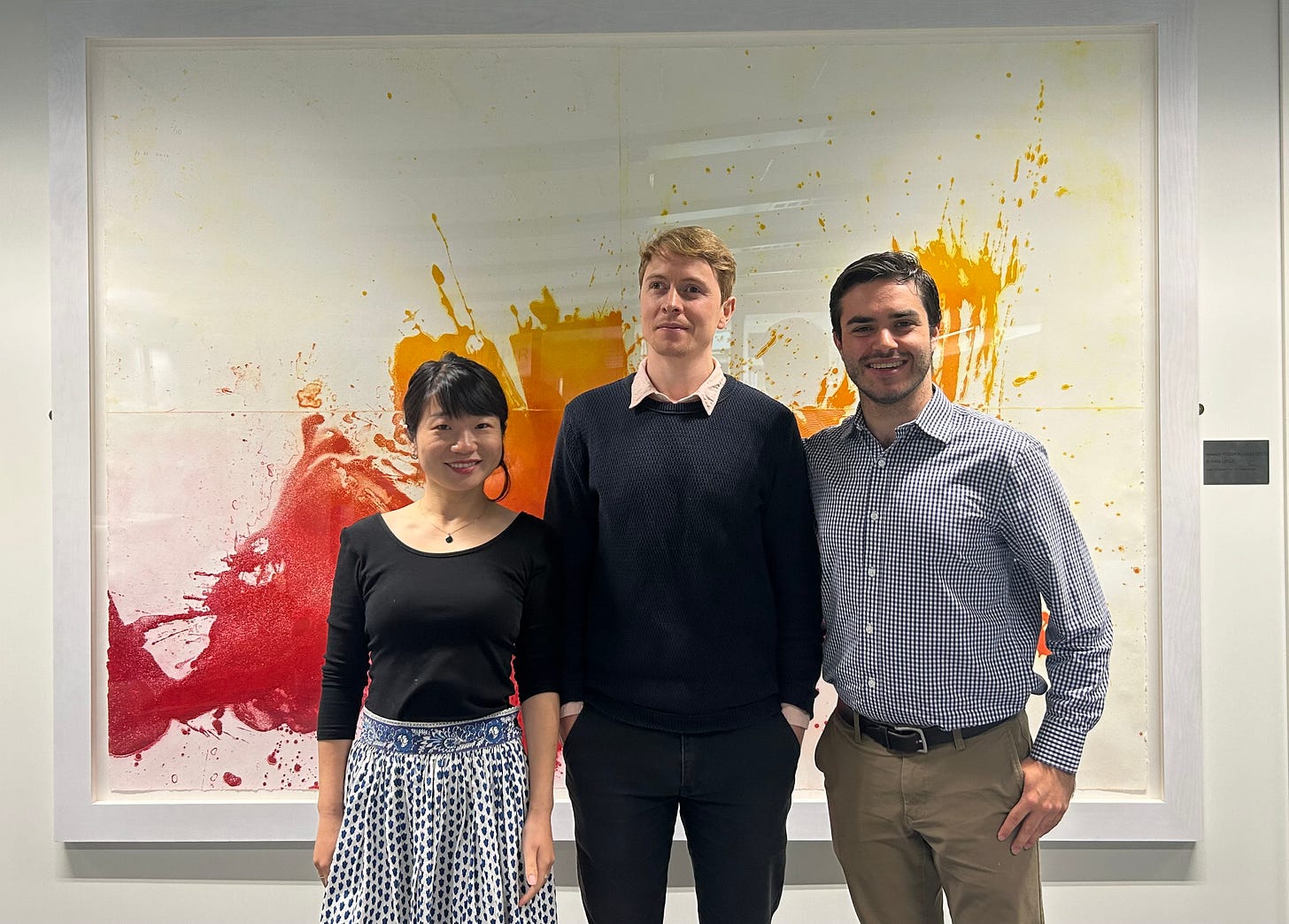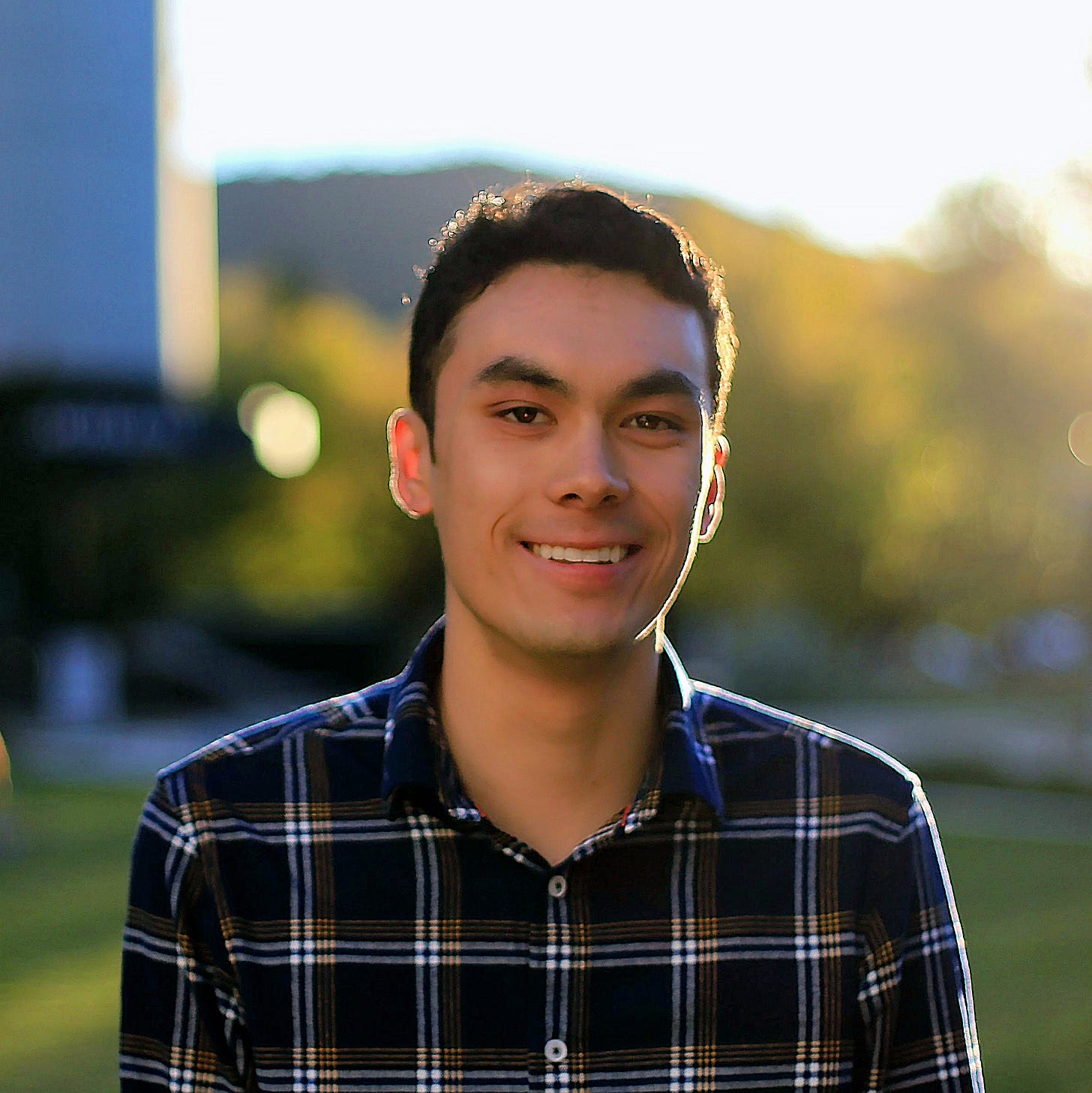Dear colleagues,
When I teach the graduate students in the University of Oxford’s “Policy Methods for Academics” course, I begin by telling them about the adventures (and misadventures) of Richard Hamming, the 20th-century mathematician, Manhattan Project contributor, and Turing Award winner. While at Bell Labs, one of the most important scientific R&D companies in contemporary history, he would approach his colleagues at lunch and begin the conversation by asking them, “What is the most important problem in your field?” When his colleagues told him they were working on problems other than the ones they labelled as most important, Dr. Hamming would press them for a reason. Unfortunately for Dr. Hamming, after a very short time, he didn’t have many people to eat lunch with.
OCPL is about building a community across academia and policy who are unafraid of Dr. Hamming’s challenge. Kayla and I have been deeply inspired by the number of individuals in our network who are working on some of the most important problems in US-China relations, emerging technology and AI, and foreign policy broadly. We were fortunate to convene many of these people at OCPL’s first May workshop, in our Policy Methods course, and through OCPL’s fellowship. Incubating and connecting the talent within Oxford to academic and policy communities around the world is core to our mission, and the success of these efforts has left us more motivated now than ever to find new ways to build community at the intersection of US-China relations and emerging technology. If you’d like to engage with the talent within the OCPL ecosystem, please don’t hesitate to reach out.
Have a great weekend, and always ask people about the hard problems they’re working on at lunch.
Scott Singer
Co-Founder and Co-Director
Our Flagship Event
On May 24, we hosted “Navigating Geopolitics, Techno-Strategy, and Global Risk: A One-Day Workshop on China, Emerging Technology, and China’s Tech Sphere.” This closed-door event aimed to bring policy actors and researchers — who work across the China foreign policy-tech policy spectrum — together for knowledge exchange. It featured nine expert speakers and a mix of keynote speeches, breakout sessions, and interactive activities on topics such as territorial disputes, economic interdependence, and AI governance. The workshop represents a crucial step in our ongoing efforts to facilitate dialogue and cooperation between key stakeholders in this vital policy area, and we look forward to hosting more closed-door sessions in the future to continue driving progress on these important issues.
Other Recent Activities
On May 16, our fellowship program welcomed Christian Shepherd and Karoline Kan to discuss their experiences reporting on China. The fellows appreciated the opportunity to learn about Christian and Karoline’s most memorable stories, challenges associated with covering China-related topics, and careers in journalism.
In the News
Ordinary citizens are ill-protected against AI tools and their resulting legal and political consequences, Kayla Blomquist warns in a recent BBC article on deep fakes of a Ukrainian YouTuber being used to promote the China-Russia friendship. In the article, she further calls for "a clearer understanding of and stronger consensus around the most dangerous threats (from AI) and how to mitigate them.”
The UK must improve its measures to prevent foreign influence and protect individuals exposed to geopolitical risks in universities while maintaining an open university system, Scott Singer argues in a recent Council of Geostrategy Big Ask. He suggests a range of steps including training for researchers and university faculty, as well as improved visa screening.
Meet Our Fellows: Tristan Yip
Tristan is a BCL student at Balliol College and a concurrently enrolled Juris Doctor student specialising in public law at the Australian National University. He holds a BA in History, Chinese Studies and Chinese Language from the Australian National University, and is proficient in Mandarin, particularly written translation. Before studying at Oxford, Tristan worked at an Australian-based risk consultancy firm advising on geopolitical risk, with a focus on China and the Asia-Pacific region.
What are your research interests?
My research focuses on the relationship between national security policy and law — in particular, how democratic governments use legislation and regulations as tools to enforce and protect national security around sensitive areas such as political influence and university research while balancing the protection of free political speech and other important democratic values. As a corollary of this, I'm also interested in the role of foreign government agencies, such as China's Ministry of State Security, in conducting overseas political influence operations that attempt to subvert or bypass national security laws. In general, liberal democracies are more open to and accepting of foreign influence, so being able to craft laws that catch the most pernicious state actors while preserving genuine free speech is crucial.
What is an aspect of the China policy space you’d like to learn more about?
I'm interested in learning more about the role of Chinese provincial-level governments in driving China's foreign policy and state security. Provincial organs have a key resourcing function within the Chinese political system, operating bureaucratic departments that employ far greater numbers of personnel than their central government counterparts. At times, provincial authorities operate almost independently from the central government in foreign affairs, including through foreign influence campaigns conducted by their own provincially-run foreign operations departments.
What are you currently reading?
I've been reading America Against America by Wang Huning, a Chinese political scientist who is currently the fourth-ranking member of the CCP's Politburo. It's a De Tocqueville-esque account of Wang's travels across the US during the 1988 US Presidential election and his observations of American politics and society.
What’s one item you can’t live without?
My phone (unfortunately).
What We’re Reading
“Towards a Coherent China Approach” by Sam Hogg. The final issue of the Beijing to Britain newsletter sets out a comprehensive strategy for improving the UK government’s China capabilities, building on the Labour Party’s ‘three Cs’ approach (Challenge, Compete, Cooperate) by adding two additional poles: Create and Communicate.
“Paper Tiger? Chinese Science and Home Bias in Citations” by Shumin Qiu et al. This working paper asserts that Chinese researchers disproportionately cite scientific work from their own country as compared to researchers from other major countries. After adjusting citation counts for this home bias, it concludes that China’s rise in citation rankings is overstated.
“International Scientific Report on the Safety of Advanced AI.” This interim report identifies risks of general-purpose AI — including privacy violations and biased decisions in high-stakes settings — and evaluates technical methods for assessing and mitigating these risks. It features contributions from 75 AI specialists overseen by an international Expert Advisory Panel and informed discussions at the AI Seoul Summit.
“Is China Financially Decoupling?” by Robin Brookes. This article argues that China’s near-zero accumulation of official foreign exchange reserves and negative net foreign direct investment are consistent with an effort on behalf of China to financially decouple from the United States.




